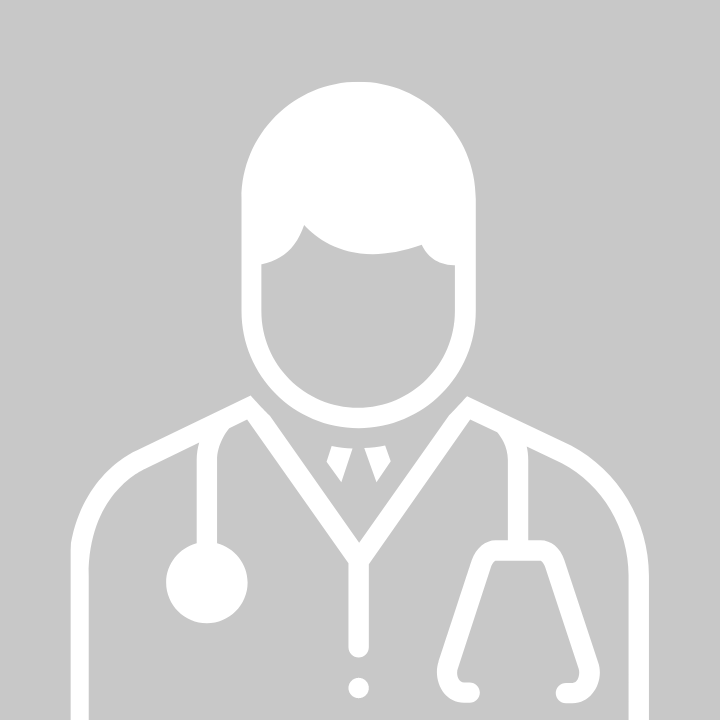Search
Results for 'neurology'
Clear-
Neurology
The specialists at Renown Neurology, operated by Renown Regional Medical Center, care for the most complex brain and nerve cases. We use the latest treatment methods to reduce and eliminate the devastating impact of neurological disorders. We also offer access to promising new therapies through clinical trials, and our partnership with the University of Nevada School of Medicine helps keep local doctors in our area. Contact Us Phone: 775-982-2970 Fax: 775-982-2973
-
Physician: Neurology Cognitive Specialist for Outpatient Clinic with Renown Health in Reno/Tahoe
Full Time - Eligible for Benefits510701 AdministrationDay -
Neuromuscular Physician need for Outpatient Clinic in Reno/Tahoe, $350K Salary with $60K Start Bonus
Full Time - Eligible for Benefits510701 AdministrationDay -
Stroke Program
Stroke is the 5th leading cause of death in the U.S. and the main cause of adult disability. If you or a loved one is experiencing a stroke, you need skilled medical care immediately. The Renown Neurovascular and Stroke Program provides expert emergency stroke care and comprehensive neurovascular care and rehabilitation services. If you suspect that you, or someone around you, is having a stroke, don't hesitate and call 911 immediately.
-
 Renown Rehabilitation HospitalRenown Rehabilitation HospitalHours
Renown Rehabilitation HospitalRenown Rehabilitation HospitalHours
Visiting hours are 8 a.m. to 5 p.m. daily. -
 Renown Medical Group - Physical Medicine & RehabilitationRenown Medical Group - Physical Medicine & RehabilitationHours
Renown Medical Group - Physical Medicine & RehabilitationRenown Medical Group - Physical Medicine & RehabilitationHours
Mon-Fri7 a.m. - 4:30 p.m.Sat-SunClosed -
Neurodiagnostics
The Neurodiagnostics team at Renown Health offers a wide range of comprehensive imaging, electrical impulse detection, and other neurodiagnostic procedures to help doctors quickly and accurately diagnose neurological conditions, allowing them to create an effective treatment plan. Using neurodiagnostics, our neurologists can diagnose a variety of dysfunctions in the nervous system, such as: Autonomic disorders Brain tumors Epilepsy Head trauma Movement disorders, such as Parkinson’s disease Multiple sclerosis Neuromuscular diseases Peripheral nerve injuries Sleep and breathing disorders Spinal cord injuries Stroke Vascular disease
-
Acute Care Therapy
The Acute Care Rehab Therapists at Renown Regional and South Meadows serve a wide variety of patients and their families with varying acuity levels and diagnoses. The 2 departments (inpatient and outpatient) are made up of around 80 employees, including 14 therapists with over 20+ years of experience and over 700 years of combined experience. What is Acute Care Therapy? The acute care setting is a very fast paced environment with a high volume of therapy orders and fluctuating census. The therapists are considered a consult service with a primary goal of helping with discharge planning and moving patients throughout our system. Depending on location, the therapists generally cover 1-3 floors within the hospital and manage a daily caseload of about 15-20 patients. Our general population ranges from Neonates to Geriatrics. The therapists provide comprehensive diagnostic and therapeutic rehabilitative services (Physical Therapy, Occupational Therapy, and Speech Language Pathology for the treatment of patients with various disorders and related medical conditions. Treatment may include a variety of activities and exercises to maximize a patient’s functional independence. Renown Outpatient Rehab Therapy Services Outpatient Physical, Occupational, and Speech Therapy services to help individuals improve & regain function to allow for higher quality of life and a more active lifestyle. We provide treatment for: Orthopedic Conditions Nerve Injuries Spinal Cord Injuries Sport-Related Injuries Worker’s Compensation Injuries Trauma and Post-Surgical Recovery Vestibular Dysfunction Hand Injuries Speech/Language Difficulties Swallowing Dysfunctions Cognitive Issues Specialty Services Include: Lymphedema Therapy Dry Needling Chronic Pain LSVT Big and LSVT Loud Modified Barium Swallow Studies (MBSS) South Meadows Campus Lite Gait & Solo Step Systems Pre-Driving Assessments and Computer Driving Simulation Wheelchair Evaluations-Basic and Complex Custom Splinting All treatments are one-on-one with a licensed Outpatient Therapist
-
Questions to Ask Your Neurologist at Your First Appointment
When it comes to your neurological health, seeking the expertise of a specialist is crucial. The Renown Institute for Neurosciences provides comprehensive care for complex diseases affecting brain, spinal cord and peripheral nerves. Let us help guide you through the appointment process to ensure a productive and informative first appointment. What to Expect at Your First Appointment at the Renown Institute for Neurosciences Duration and Purpose: Your first appointment will last approximately one hour. This time allows the doctor to ask specific questions, do a thorough neurological exam and discuss your concerns. Specialized Care: You will be matched with a provider who specializes in assessing and treating your specific ailment or condition. This tailored approach ensures that you receive care from an expert who has the specialized interest and expertise to address your needs effectively. Initial Assessment: During your visit, you will first see a medical assistant who reviews your medication history and standard screening questions provided by your doctor. Following this portion of your appointment, the neurologist will ask specific and detailed questions about your condition and conduct a non-invasive neurological examination to evaluate your brain and nervous system functioning. This exam involves painless tests assessing your cognitive function and nerve operation, including tests for sensation, strength and coordination. Treatment: After performing the neurological exam and addressing your questions, the neurologist will review the possible diagnosis and treatment plan, including any medication needs to help with your condition. Finally, your doctor may discuss the role of additional testing, including imaging studies (CT/MRIs), peripheral nerve testing (EMG) or brain wave testing (EEG), which will be scheduled for a later date. Making the Most of Your Visit To make your appointment as beneficial as possible, consider the following tips: Arrive Early: Plan to arrive at least 10 minutes early to fill out any necessary check-in items before your appointment's scheduled start time. This will ensure a smooth and timely visit. Bring Insurance Information: Have your insurance details readily available to facilitate the administrative process. This will help avoid any delays or confusion. Gather Medical Records: If you have received treatment or undergone tests with other healthcare providers relevant to your condition, bring along any medical records or test results. This information will assist your neurologist in gaining a comprehensive understanding of your medical history. Prepare Questions and Concerns: Consider noting the following, which can help you better answer questions the neurologist may ask during your appointment. The frequency, duration and severity of your symptoms. Share information about any medications or treatments you have tried for the condition and the outcomes. Prioritize questions to help the neurologist answer your most significant concerns during the initial visit. Your first appointment with a doctor at the Renown Institute for Neurosciences is an opportunity to receive expert care and gain insights into the best method of treatment for your condition. By understanding what to expect and following the tips provided, you can maximize your visit and be on your way to achieving overall health and wellness.
Read More About Questions to Ask Your Neurologist at Your First Appointment
-
Alzheimer's Safety Tips for Caregivers to Know
November is National Alzheimer’s Disease Awareness Month. At Renown Health, we know that Alzheimer's safety for your loved one is a priority, as the symptoms can sometimes lead to unsafe situations. We asked Dr. Jonathan Artz – a neurology physician with Renown Health and an assistant professor of clinical neurology at the University of Nevada, Reno School of Medicine – for tips on keeping loved ones safe and secure. According to the Alzheimer’s Association, Alzheimer’s disease affects safety in various ways, specifically due to body and brain adjustments. These changes can include: Judgment, including forgetfulness Sense of place – getting lost on the way home Behavior – being suspicious or fearful Body difficulty – losing balance Sensing ability – noticeable sensitivity in hearing, seeing or temperature Dr. Artz gives us four major tips to ensure your loved one’s safety as you both navigate this disease together. Watch for Wandering Those experiencing Alzheimer’s disease tend to wander and get lost. Try the following tips to reduce the risk of wandering: Get your loved one an ID bracelet and have them wear it at all times. You can also enroll your loved one in “Wandering Support.” Install door chimes so you know when exterior doors are open. Ask neighbors to call you if they see your loved one out alone. Go with your loved one when they insist on leaving the house. Don’t argue or yell. Instead, use distraction or gentle hints to get them to return home. Discourage Driving Driving can be unsafe for someone with this disease. With this in mind, ask a doctor whether it’s safe for your loved one to drive. For example, on a case-by-case basis, there are certain situations where doctors are required to report individuals with particular cognitive impairments, wherein a form of a driving assessment will be recommended. Limit access to the car. Keep the keys with you or lock them away. Ask an authority figure, such as an insurance agent or a doctor, to tell them not to drive. Adult-Proof Your Abode A simple living space is a safe living space. This means reducing clutter and removing any issues that may pose a safety concern. You may also want to get advice from an occupational therapist (home safety expert). Keep in mind that some changes may not be needed right away. Focus on major safety concerns first. Try the following tips: Add lighting (or glow-in-the-dark tape) to brighten dark areas, including stairways and halls. Use color contrast or texture indicators for dials, knobs and appliance controls. Remind your loved one not to carry items while walking to avoid a fall. Remove sharp objects from drawers and countertops. Avoid using small throw rugs or doormats, as they are easy to trip on. Move frequently used items so that they are easy to reach. Lock away alcohol and tobacco products, as they are not recommended for dementia patients. Install handrails in the shower, tub and near the toilet. Bathroom falls are especially common. Adjust the setting on your hot water heater so water does not scald. Those with Alzheimer’s can lose their sensitivity to temperature. Move and lock up hazardous chemicals and cleaning supplies, such as bleach and insecticides. Disable and remove guns or any weapons. Supervise any medication taken by your loved one. Promote a Positive & Healthy Lifestyle Continually emphasize the strengths of your loved one by promoting participation in meaningful activities, wellness visits and healthy habits to help them improve their well-being. Here are some ways to keep them physically and mentally active: Maintain regular vision and hearing screenings and make necessary adaptations. Establish a routine for daily activities. Encourage participation in self-care and leisure activities. Work with your loved one’s doctor to establish a healthy diet. Ensure proper hydration. It may help to set reminders for your loved one to drink fluids. Encourage regular exercise. Exercise delivers oxygen to the brain, improving brain health. Promote good sleep habits. Good quality sleep can increase overall brain health and has been associated with improving memory, attention and concentration. Resources and support are available with the Renown Memory Disorders Program. Providers within this program are specifically dedicated to treating several different memory-related disorders. Memory Disorders Resources & Support.
Read More About Alzheimer's Safety Tips for Caregivers to Know
-
 George Bigley, MDNeurologyGeorge Bigley, MDNeurologyNeurology Physicians
George Bigley, MDNeurologyGeorge Bigley, MDNeurologyNeurology Physicians -
Neurosciences Clinical Trials
Neurosciences Clinical Trial Opportunities





